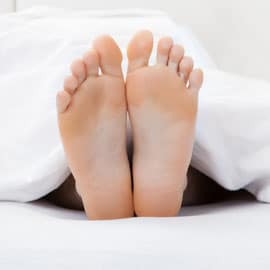
Losing Weight and Gaining Sleep
Getting enough sleep is one of the most important factors when it comes to losing weight and keeping it off for good.
 It is often said that you don’t gain weight overnight, and you can’t lose weight overnight either. While this stands true, the relationship between sleep deprivation and weight gain is a valid one. If you miss out on sleep, those hours might show up on your waist line.
It is often said that you don’t gain weight overnight, and you can’t lose weight overnight either. While this stands true, the relationship between sleep deprivation and weight gain is a valid one. If you miss out on sleep, those hours might show up on your waist line.
Researchers at the University of Colorado recently found that missing a few nights of sleep in a row can have close to immediate effects on your waist line. This is a result of metabolic, hormonal and behavioral changes that affect how we eat food, as well as how our bodies react to the foods we eat.
An entire night of sleep doesn’t have to be missed for negative consequences to settle in. The average adult needs between seven and nine hours of sleep every night, depending on their health, level of stress and activity during the day. Cutting this in half is enough to seriously disrupt the body’s natural processes.
At the University of Colorado, the researchers found that cutting sleep from nine hours to five hours for just one week resulted in two pounds of weight gain. When the study participants switched back to sleeping eight to nine hours a night, the weight started to fall off—but not all of it. Missing out on sleep makes weight easy to gain, but as is often the case, losing weight requires additional effort.
There are three distinct factors influencing the rate of weight gain after a missed night of sleep:
- Behavioral changes: People tend to eat more when they are tired. Food provides energy, and when you miss out on sleep the body will desire energy from alternative resources.
- Metabolic changes: At the University of Chicago researchers found that sleeping 4.5 hours a night, four nights in a row drastically altered the health of fat cells, reducing their sensitivity to insulin—something that is associated greatly with obesity and type-2 diabetes. The participants in this study were healthy and in their 20s, but less than one week of sleep deprivation aged participant’s fat cells significantly.
- Hormonal: Sleep is associated with the production and regulation of two hormones: ghrelin and leptin. Ghrelin instigates hunger, leptin promotes satiation. Missing out on sleep leads to unbalanced levels of these two hormones, resulting in greater production of ghrelin and less leptin, which means you will be hungrier without feeling full.
During your medical weight loss program, it may benefit you to pay greater attention to your sleeping habits. Set a strict bedtime and try going to sleep and waking up at the same time every day—including on the weekends. It also helps to reduce distractions in your bedroom by turning off the TV so you can fall asleep more soundly.




